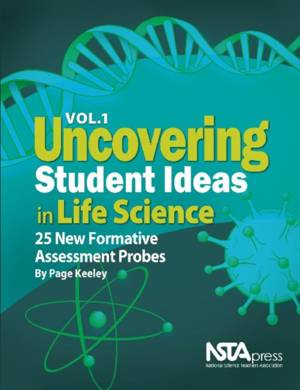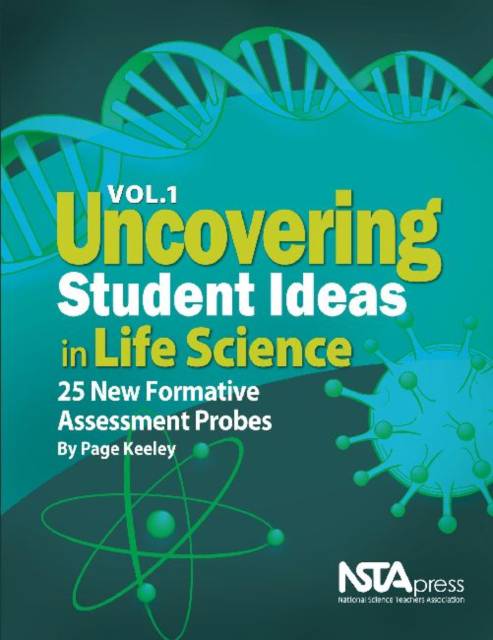
- Afhalen na 1 uur in een winkel met voorraad
- Gratis thuislevering in België vanaf € 30
- Ruim aanbod met 7 miljoen producten
- Afhalen na 1 uur in een winkel met voorraad
- Gratis thuislevering in België vanaf € 30
- Ruim aanbod met 7 miljoen producten
Zoeken
€ 53,45
+ 106 punten
Omschrijving
Author Page Keeley continues to provide K-12 teachers with her highly usable and popular formula for uncovering and addressing the preconceptions that students bring to the classroom--the formative assessment probe--in this first book devoted exclusively to life science in her Uncovering Student Ideas in Science series. In this volume, Keeley addresses the topics of life and its diversity; structure and function; life processes and needs of living things; ecosystems and change; reproduction, life cycles, and heredity; and human biology. Using the probes as diagnostic tools that identify and analyze students' preconceptions, teachers can easily move students from where they are in their current thinking to where they need to be to achieve scientific understanding. At the same time, use of the probes deepens the teacher's understanding of the subject matter, suggests instructional implications, and expands assessment literacy. Using the student-learning data gained through the probes to inform teaching and learning is what makes the probes formative. Each probe is supported by extensive Teacher Notes, which provide background information on the purpose of the probes, related concepts, explanations of the life science ideas being taught, related ideas in the national science standards, research on typical student misconceptions in life science, and suggestions for instruction and assessment.
Specificaties
Betrokkenen
- Auteur(s):
- Uitgeverij:
Inhoud
- Aantal bladzijden:
- 162
- Taal:
- Engels
- Reeks:
Eigenschappen
- Productcode (EAN):
- 9781936137176
- Verschijningsdatum:
- 1/03/2011
- Uitvoering:
- Paperback
- Formaat:
- Trade paperback (VS)
- Afmetingen:
- 211 mm x 272 mm
- Gewicht:
- 1102 g

Alleen bij Standaard Boekhandel
+ 106 punten op je klantenkaart van Standaard Boekhandel
Beoordelingen
We publiceren alleen reviews die voldoen aan de voorwaarden voor reviews. Bekijk onze voorwaarden voor reviews.







